Any heating system installed in new or old buildings after January 1, 2024 must be based on 65% renewable energy, the German government said in a statement.
The goal of this program is to achieve energy standard D. This should reduce energy consumption and contribute to climate protection.
EU
plans to become carbon neutral by 2050.
The German government approved the bill on the prohibition of gas and oil heating in new and refurbishment buildings from 2024 as Europe’s largest economy frantically trying to do without Russian gas and oil intensify its efforts to achieve climate goals.
The bill, which resolves the Liberal-Green divide in Olaf Scholz’s three-party coalition, stipulates that any heating system installed in new or old buildings after January 1, 2024 must be 65% renewable energy. Exceptions will be made for people with low incomes. “Germany will not be able to achieve its climate goals, nor rapidly reduce its dependence on fossil fuels, without rapidly changing the situation in the building heating sector,” the bill says.
However, the legislation has drawn sharp criticism. “The government wants to push the energy revolution aggressively,” said Kai Warnecke, head of Haus & Grund, a homeowners’ association. “This measure will accelerate the transition to heat pumps, solar panels and renewable energy hydrogen boilers in German buildings.” Heat pumps use electricity to draw heat from outside for home heating and hot water so that low-income people can afford the technology. Germany is currently offering subsidies of up to 45% of the cost of a pump if it replaces an old oil boiler.
Germany’s construction sector accounts for a third of the country’s carbon dioxide emissions and has fallen short of its emissions reduction targets on multiple occasions.
Formerly German authorities adopted a lawaccording to which all owners of residential buildings are required to insulate their buildings to standard D within 10 years, until 2033, and then over the next 17 years – to zero energy consumption.
A building’s energy efficiency class “D” in Germany means that its specific energy consumption must be between 100 and 130 kWh/m² per year. Energy consumption is calculated using an energy certificate, which also contains information about energy deficiencies and recommendations for improving energy efficiency.
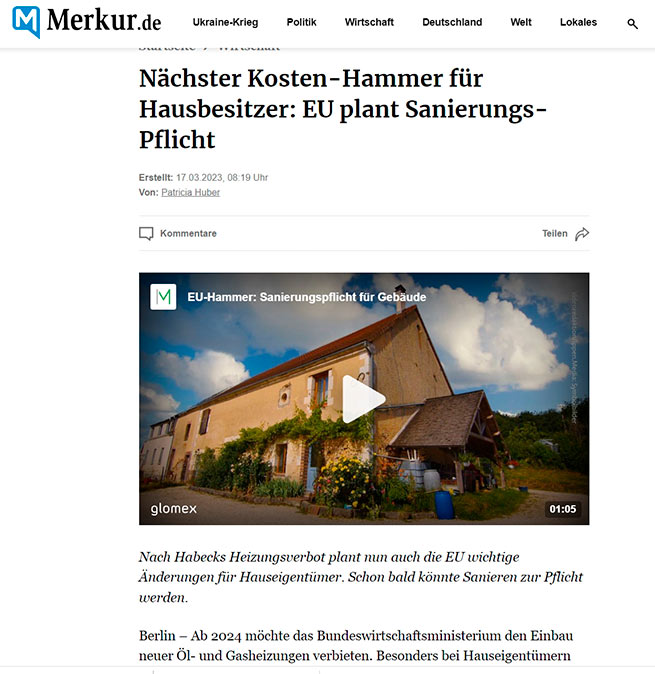
Edition merkur.de, however, specifies that the costs for the implementation of this plan per family will be from 15,000 to 100,000 euros. And given the shortage of workers already now, with such a huge demand, prices for work will jump five times. In total, from 75,000 to 500,000 euros for one family, only insulation up to the “D” standard.
If with insulation up to standard D it is still somehow clear, then the zero level is still beyond science fiction and economics, respectively (Note. editions).
EU also comments on the expense issue on a separate Q&A website. It states: “Energy efficient renovations pay off over time as energy bills are lower and the savings they generate are typically many times the investment needed to improve the overall efficiency of a building.” which will amount to 150 billion euros. It is not yet specified how they will be distributed and how the owners will receive them.
The proposal of the EU Commission does not provide for drastic measures such as expropriation, prohibition of use, lease or sale. Member States decide on sanctions. However, they must be effective, proportionate and dissuasive.
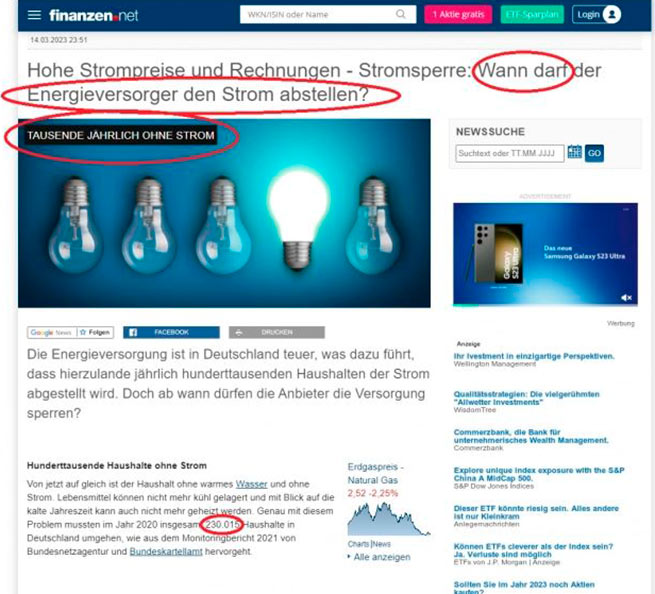
However, another German publication claims that not everything is as rosy as they say in the European Commission. According to the publication of one of the largest German financial publications finanzen.net, according to the laws of Germany, even for 100 euros of delay, you can be disconnected from the supply of electricity, gas or water. As of 2021, hundreds of thousands of homes were recorded in the country without electricity and hot water. Without electricity, food can no longer be stored in the refrigerator, and due to the cold outside, it cannot be heated on the stove or in the microwave. This is exactly the problem that a total of 230,015 households in Germany had to face in 2020, according to the 2021 monitoring report prepared by Federal Antimonopoly Officem.
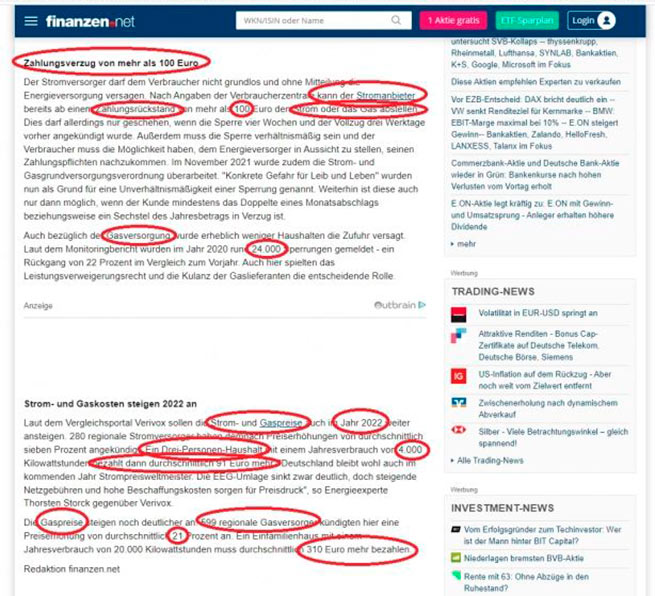
And this means, the newspaper notes, that in case of non-compliance with energy independence programs, the owners will be mercilessly fined, up to sale for a pittance at auction for renovation debts – in fact, confiscation of housing.
A building’s energy efficiency class “D” in Germany means that its specific energy consumption must be between 100 and 130 kWh/m² per year. Energy consumption is calculated using an energy certificate, which also contains information about energy deficiencies and recommendations for improving energy efficiency.

Edition merkur.de, however, specifies that the costs for the implementation of this plan per family will be from 15,000 to 100,000 euros. And given the shortage of workers already now, with such a huge demand, prices for work will jump five times. In total, from 75,000 to 500,000 euros for one family, only insulation up to the “D” standard.
If with insulation up to standard D it is still somehow clear, then the zero level is still beyond science fiction and economics, respectively (Note. editions).
EU also comments on the expense issue on a separate Q&A website. It states: “Energy efficient renovations pay off over time as energy bills are lower and the savings they generate are typically many times the investment needed to improve the overall efficiency of a building.” which will amount to 150 billion euros. It is not yet specified how they will be distributed and how the owners will receive them.
The proposal of the EU Commission does not provide for drastic measures such as expropriation, prohibition of use, lease or sale. Member States decide on sanctions. However, they must be effective, proportionate and dissuasive.

However, another German publication claims that not everything is as rosy as they say in the European Commission. According to the publication of one of the largest German financial publications finanzen.net, according to the laws of Germany, even for 100 euros of delay, you can be disconnected from the supply of electricity, gas or water. As of 2021, hundreds of thousands of homes were recorded in the country without electricity and hot water. Without electricity, food can no longer be stored in the refrigerator, and due to the cold outside, it cannot be heated on the stove or in the microwave. This is exactly the problem that a total of 230,015 households in Germany had to face in 2020, according to the 2021 monitoring report prepared by Federal Antimonopoly Officem.

And this means, the newspaper notes, that in case of non-compliance with energy independence programs, the owners will be mercilessly fined, up to sale for a pittance at auction for renovation debts – in fact, confiscation of housing.


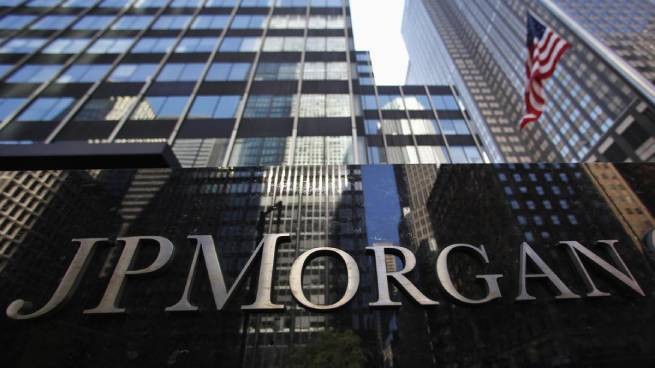


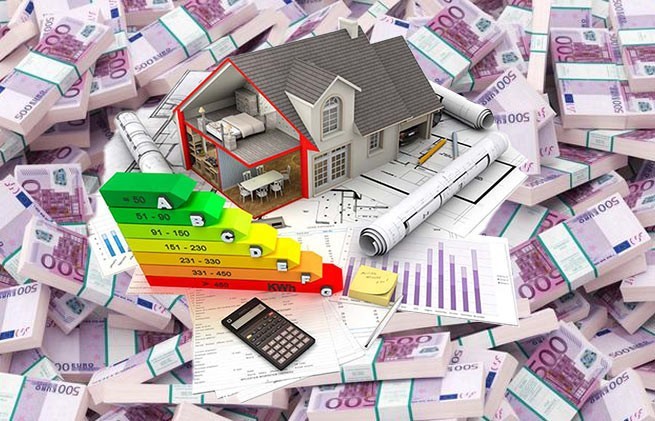

More Stories
Funds of the largest US bank JP Morgan Chase were arrested in the Russian Federation
Deputy Shoigu, detained in the Russian Federation, faces 15 years (video)
Latvia will not teach Russian in schools